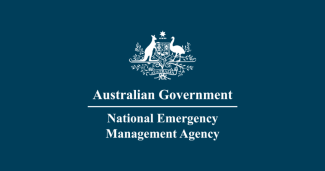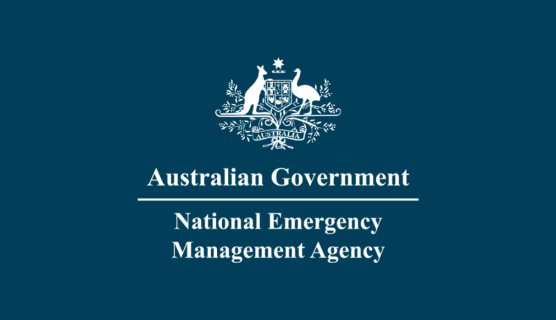Channel: ABC News Australia
Program: Afternoon Briefing
Date Broadcast: 13 September 2024
Time Broadcast: 4:06 PM - 4:14 PM
MATT DORAN: As spring stretches across the country following a long and cold winter in many parts, attention is already turning to the threat of emergencies such as bushfires over summer. Joe Buffone is the acting Coordinator General of the National Emergency Management Agency, and he joins us this Friday afternoon from the National Situation Room here in Canberra. Joe Buffone, welcome to Afternoon Briefing. Paint a picture for us here at the moment, what are the biggest threats or the biggest concerns that your agency is picking up at the moment?
JOE BUFFONE: Yeah, good afternoon, Matt, and good afternoon to your viewers. We've been briefed by the Bureau around what the outlook looks like, as well as there's been a release of the spring outlook in relation to bushfires. So, really what we're looking at for spring is an increase in bushfire risk in the Northern Territory, in parts of Queensland, in western parts of Victoria, eastern parts of South Australia, parts of New South Wales and Queensland as well. But that doesn't say that bushfires can't occur in other areas. We're also looking at the potential of severe storms as well, and we've seen some significantly in the last couple of weeks in Tasmania and Victoria. Of course, we're looking beyond just spring, Matt, as well. So we're looking to see, not quite ready yet to get the outlook in relation to cyclones. And we've seen cyclones not only impact in terms of the wind damage, but then the low pressure and significant flooding that's occurred in a range of different states. In particular, if you think about North Queensland during the previous season with tropical Cyclone Jasper. So, we're really focusing on preparing for those risks, but continuing to monitor and working in partnership with states and territories.
MATT DORAN: Based on the information and the briefings that you're getting from weather agencies, is there anything about this coming spring-summer season that is different from what we've seen in recent times? Because even though we have seen some bushfires over the last couple of years, I guess we've been quite lucky to escape the worst of it compared to, say, the Black Summer of 2019-20.
JOE BUFFONE: Yeah, thanks Matt. Look, right now, the La Niña and El Niño indicators are all neutral, and we're seeing above-average in some areas, but it's unlikely at this stage that we will see the big bushfires like we saw in Black Summer. However, we're seeing a lot of regrowth in a lot of areas and therefore, you'll see significant grass fires that run very, very fast, and we saw some in New South Wales in the last couple of weeks as well. The other thing is, as we see severe storms coming through which create significant impact, significant damage, we've seen power systems that are being impacted, so they're the sorts of things that we're looking at. The other key thing is, Matt, we're doing a lot of preparedness nationally. Every state and territory is gearing up for the higher-risk weather season and doing a lot of their own preparedness, both in bushfires, in cyclone areas, in severe weather, in riverine flooding, so really focused on all of those sorts of things. At a national level, you know, we brief media, we're briefing parliamentarians. We've actually got a big summit next week, about 300 plus people coming into Canberra from states, territories, the private sector. So, we're engaging with the private sector and all of this is about, you know, making clear that this is what the outlook looks like, this is how we coordinate, this is how we work together and this is how we can get the best outcome against those risks that I've just spoken about.
MATT DORAN: Is that a reflection that maybe in the past there hasn't been that level of coordination or even basic communication, be it across state and territory borders, be it between government agencies and the private sector, that when these crises do hit us, we're not able to, as a collective, the nation hasn't been able to respond as well as they possibly could have?
JOE BUFFONE: So, Matt, we're on a constant learning journey and we've seen post Black Summer, there was a lot of lessons, you know, there was 300, pretty much three kilometres of fire front down the east coast. We still had some cyclones and we still had some other severe weather. There was a royal commission. We've worked very, very hard. We've changed a whole lot of our arrangements and we work really, really closely, as I said, with states and territories who have the primary responsibility within their jurisdictions. The engagement with the private sector, we learnt a lot through Covid around the value of having the private sector engaged. So, what you've highlighted is we are seeing more frequent, more intense events and therefore the whole system has been operational a lot longer. In NEMA itself, we're only two years old, but, you know, we come from the Emergency Management Agency and National Recovery and Resilience Agency. We're operational probably about 60 per cent of our collective time now, whereas historically we were probably at about 20 per cent operationally. So, significant shift. So, therefore, our learnings have been applied, and we're seeing better cooperation, better collaboration and better coordination.
MATT DORAN: Having to be at that peak level of preparedness that you've just outlined for a longer period of time across the year, I can only assume that would stretch some of the resources that are there across the country having to be at that state of alert.
JOE BUFFONE: Yeah, absolutely. There's no doubt that that starts to put a little bit of pressure on the system. But what we're doing is we've got arrangements to share resources across jurisdictions, so we work very closely with states and territories through the National Resource Sharing Centre. We obviously can draw across Australian government. We've also got arrangements to bring in international support if that's what's required. You know, we've supported the US and Canada just recently, and we've got the same arrangements for them to support us. In 2022, we reached out to Singapore, who supported us with specialist flood rescue capabilities. So, we're putting everything in place so that we can scale up accordingly and make sure that we're in place. The other thing is though, Matt, this is not just about government agencies and emergency services. It's also about communities. It's about individuals understanding the environment that they live in and having their own basic emergency plan so that it doesn't matter what occurs, that they actually can react. But especially for those that live in flood prone areas, in bushfire areas, in cyclone areas, now's the time to have the conversation with your family, with your friends about what you're going to do and be prepared.
MATT DORAN: Do you think people are having those conversations more readily these days, that it is more front-of-mind to get ready and get prepared when the danger season approaches?
JOE BUFFONE: Well, that's probably what we'll continue to do. The agencies in the states and territories do a fantastic job. They've got a whole range of programmes, but I'm probably asking for a call to action for everyone around the country. You know, have a think about where you are, and the other thing is, obviously the high-risk weather season is in holiday period in Australia. There's a whole lot of people that will move to areas that they probably are not used to. You know, some of the coastal areas, some of the mountain areas, some of the bush areas. So, just understand what that looks like. What would you do if you are caught with a bushfire? But the important thing is listen to local emergency services advice. So, it's a pretty basic sort of thing. Just listen to that advice and act on it and don't take risks. It's not worth it.
MATT DORAN: Well, Joe Buffone, no doubt we'll be speaking with you at a couple of junctures across the next couple of months for your guidance this Friday. Thanks for joining us.
JOE BUFFONE: Yeah, great. Thanks very much, Matt.

